'Budget-conscious mums' are the reason Coles is telling its suppliers they cannot put up their prices.
As Woolworths and Coles have engaged in an increasingly fierce price war to win customers some suppliers are concerned that they will bear the burden.
More BusinessDay Videos
Woolworths earnings report
Supermarket chain Woolworths has beaten rival Coles in sales growth for the first time in over 7 years.
The concern is particularly strong around Coles after Woolworths' second-quarter sales growth win over supermarket rival Coles.
Also Woolworths' focus on promoting brands is proving a hit with some producers who fear Coles' private label strategy and planned reduction in its total number of product lines could hurt sales in the long term

Suppliers at a Coles forum last week say it was made clear that price rises would be hard to come by because the 'mums' of Australia would not accept them.
"Coles said it would not accept price increases on behalf of mums and that any price rises could accelerate its private label strategy," he said.
"It felt like a shot across the bow."
The supplier said it was a "very friendly" meeting but he said the consensus among suppliers was that the Wesfarmers-owned Coles was setting them up for a "tough year".

The supermarket chain also warned against tricky manoeuvres like cutting down pack sizes to reduce costs without adjusting prices.
Sources close to Coles claim the messages from a recent supplier forum were no different to what its supermarket boss John Durkan said at the release of Wesfarmers' half year result.

One insider said the supermarket business was not asking suppliers to do anything it was not doing itself, like installing energy-efficient lights to cut its power bills.
"John has been very clear that price is very important and that Coles will continue to lower prices," the insider said.
If we were sitting on the fence before that meeting, we've now switched to Woolworths.
Supplier
"In the current environment when we are looking at wages growth at 30-year lows, it's just entirely the wrong environment for price increases."
Wesfarmers' half-year result revealed Coles' earnings margins slipped to 4.6 per cent and the group warned margin pressure was expected to continue in the short term as a result of its focus on "delivering customer value in a competitive market".
Coles' earnings before interest and tax fell by almost 7 per cent in the first half to $920 million and its comparable food and liquor sales growth weakened to 0.9 per cent in the second quarter compared to 3.1 per cent at Woolworths in the same period.
One supplier said Woolworths was easy to negotiate with and it appeared to have the sales momentum behind it as well as a real commitment to "promoting brands".
"If we were sitting on the fence before that meeting, we've now switched to Woolworths, the supplier meeting was a pretty good advertisement for Woolworths," he said.
As the Woolworths turn-around gains traction, Bank of America Merrill Lynch claims the retail giant's partnerships with suppliers are improving.
Analyst David Errington, who has a strong buy recommendation on Woolworths, said the chain was becoming "increasingly successful" in securing supplier support to fund price reductions.
And he has forecast that suppliers would shoulder the majority of the price investment in the second half of this financial year.
"Over the past 12 to 18 months the majority of price investment, nearly $1 billion made by Woolworths was primarily funded by Woolworths, with very little supplier support," Mr Errington said.
"This hurt Woolworths' earnings materially and was well documented in one example, its price match and beat of Coles' $8 barbecue chicken in January 2016."
One major grocery supplier said Woolworths was winning over suppliers because it was "supporting brands".
Merrill Lynch claims Woolworths' earnings before interest and tax could increase by 33 per cent in the six months to the end of this financial year and the sale of its petrol business will likely put it in a net cash position in 12 months.


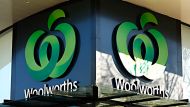
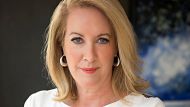






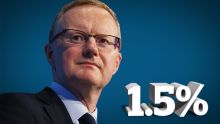

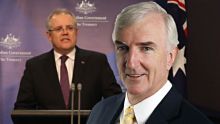

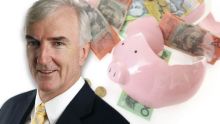

0 comments
New User? Sign up